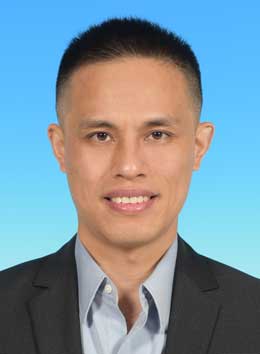Lin FU 傅林
Lin FU 傅林 Details

Contact Information
Research Interests
Biography
Prof. Fu is an Assistant professor in the Department of Mechanical and Aerospace Engineering and the Department of Mathematics at the Hong Kong University of Science and Technology (HKUST). Before he joined HKUST, he was a postdoctoral fellow working with Prof. Parviz Moin at Center for Turbulence Research (CTR), Stanford University, for more than 3 years and he also did postdoctoral research with Prof. Nikolaus A. Adams in Technical University of Munich (TUM), where he obtained his Ph.D. degree with a grade of Summa Cum Laude (passed with the highest distinction). He got his Bachelor and MPhil degrees from Northwestern Polytechnical University. He was recognized with the Early Career Award by the Research Grants Council (RGC) of Hong Kong in 2022.
Prof. Fu’s on-going and future research involves the fundamental study of flow physics including turbulence, transitional flows, multi-phase flows, and electrically conducting fluids. His research dedicates to an improved theoretical understanding of these complex fluids and contributes to optimizing the engineering quantities of interest, e.g., drag, heat transfer, mixing ratio, etc. The potential applications involve the flow control of transonic and low-speed vehicles, scramjet hypersonic propulsion systems, combustions, microbubble dynamics, cavitation, aerodynamics, etc.
Due to the wide-range flow length-scales including singularities (e.g. shockwaves), the main research methods rely on the high-fidelity Direct Numerical Simulation (DNS) and Large-eddy Simulation (LES). In order to reproduce these sophisticated fluid phenomena with the modern supercomputers, advanced turbulence models, e.g., subgrid-scale (SGS) model and wall model, will be developed as well as state-of-the-art fundamental numerical methods which include but not limited to high-order numerical schemes for hyperbolic conservation laws, interface-tracking algorithms, high-quality mesh generation technologies, and robust multi-physics parallel software.
Research Interests
Biography
Prof. Fu is an Assistant professor in the Department of Mechanical and Aerospace Engineering and the Department of Mathematics at the Hong Kong University of Science and Technology (HKUST). Before he joined HKUST, he was a postdoctoral fellow working with Prof. Parviz Moin at Center for Turbulence Research (CTR), Stanford University, for more than 3 years and he also did postdoctoral research with Prof. Nikolaus A. Adams in Technical University of Munich (TUM), where he obtained his Ph.D. degree with a grade of Summa Cum Laude (passed with the highest distinction). He got his Bachelor and MPhil degrees from Northwestern Polytechnical University. He was recognized with the Early Career Award by the Research Grants Council (RGC) of Hong Kong in 2022.
Prof. Fu’s on-going and future research involves the fundamental study of flow physics including turbulence, transitional flows, multi-phase flows, and electrically conducting fluids. His research dedicates to an improved theoretical understanding of these complex fluids and contributes to optimizing the engineering quantities of interest, e.g., drag, heat transfer, mixing ratio, etc. The potential applications involve the flow control of transonic and low-speed vehicles, scramjet hypersonic propulsion systems, combustions, microbubble dynamics, cavitation, aerodynamics, etc.
Due to the wide-range flow length-scales including singularities (e.g. shockwaves), the main research methods rely on the high-fidelity Direct Numerical Simulation (DNS) and Large-eddy Simulation (LES). In order to reproduce these sophisticated fluid phenomena with the modern supercomputers, advanced turbulence models, e.g., subgrid-scale (SGS) model and wall model, will be developed as well as state-of-the-art fundamental numerical methods which include but not limited to high-order numerical schemes for hyperbolic conservation laws, interface-tracking algorithms, high-quality mesh generation technologies, and robust multi-physics parallel software.
